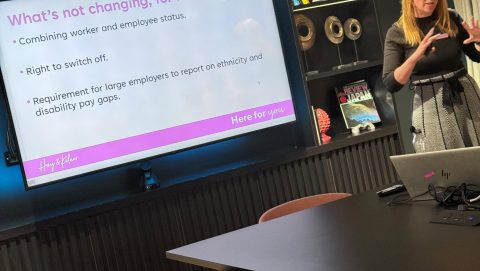
People aren’t leaving the workforce – they’re leaving managers they dislike and dysfunctional teams for better compensation and conditions.
There has been a steady move towards an expansion of the gig economy in which workers are independent contractors who are paid to take on tasks by those who require their services. In many countries, unemployment protection, healthcare cover, and other benefits do not apply to these workers.
The gig economy never delivered the benefit it promised. Economics professor and author of A Fissured Workplace, David Weil, argues that the gig economy has resulted in declining wages, eroding benefits, inadequate health and safety conditions, and ever-widening income inequality for society as a whole. Eroding job conditions and employee protections did not create resilience in the labour market: it made it more fractured and fragile.
Resilient systems require protecting all the components of a system and not a particular class of individuals. Indeed, the reaction to the gig economy has been, in some countries, to classify such workers as employees and to give them back access to the facilities that they had progressively lost. It would be prudent to understand how and why these “frictions” emerged before trying to remove them in the name of efficiency. It turns out that “frictions” like sick pay, mental and physical health supports, and job continuity are now the benefits that workers are chasing.
A similar argument can be made about statutory minimum wages. Many economists argued that these were inefficient since they diminished employment by making labour too costly. The evidence is that there was an impact on wages but no detectable influence on employment. Large increases in minimum wages in countries such as Denmark had little or no impact on employment, and in others employment increased. What was supposed to lead to more unemployment failed to do so, confounding standard but simplistic economics.
It turns out “frictionless” employment can create labour market conditions that are far more expensive for companies that choose not to invest in their workers. Short-term savings on employee benefits and support start to look like good value for money when comparing the cost of high employee turnover. A good estimate of turnover costs indicate that it costs about 150 per cent of an employee’s annual pay to replace them: hiring and recruitment costs, training, orientation, upskilling, reduced team productivity from turnover all start to get very expensive.
The long-term cost of losing good employees can be far more than the short-term expenses of providing good working environments. The irony of high turnover compounds that expense: the most skilled, capable and valuable employees are also the most mobile. They will be the first, and fastest to leave employers who do not value and respect them appropriately.
Safe ports in economic upheaval
People leave jobs for many different individual reasons. Child and elder care considerations have been a huge factor for many. Physical and psychological wellbeing have crystallised as a priority for many workers who previously viewed it as an extravagance or even a vice. Many people have faced trauma in more immediate and severe ways. Daryl Tol, executive vice president of One Mind, a non-profit organisation that focuses on brain health, says that change is a natural response to trauma, and billions of people have experienced trauma all at the same time. It is entirely natural that this trauma will lead to people making decisions to change.
Keeping workers should focus on two core strategies:
-
Creating a long-term vision for the company that includes the people in it. When employees can see that their own career goals align with the organisation’s objectives, they are far more likely to stay. But people need to see that their future staying with a company is brighter than the opportunities and risks of leaving.
-
Line managers and team leaders must have an understanding of people’s needs as individuals. This connects directly with the first point – if managers see people as easily replaceable cogs in a company machine, and if employees also see themselves as such, why wouldn’t they leave for any better offer? If workers are easily replaceable, so are bosses.
Finding the right balance will create both stability for the employee and the company; and provide the autonomy for employees which makes the job. Then, it will be straightforward to develop employee benefits and perks that directly reinforce these points.
Clear and well-structured performance management frameworks can be independent of hourly or location-based requirements. The most successful approaches will be those that give employees and team leaders the autonomy to make their own decisions about how to manage their schedules and balance digital tools and technology. Performance management should provide a framework but avoid heavy-handed surveillance tools that inhibit employee performance and engagement.
Real and effective mental health and wellbeing supports are a major driver of employee turnover. There has been a rapid expansion of employee wellbeing initiatives and growing awareness of its importance. To have a real effect, cohesive and well-structured supports need to understand the real challenges faced by workers in that specific environment and team. A $5 subscription to a wellbeing app may seem like a nice gesture but it is not a mental health strategy. Find ways to develop more cohesive programmes that support resilience in the long-term and employee autonomy to respond to challenges as they emerge.
Finally, personal and professional development and growth is always important. The best employee development programmes give employees some independence and autonomy about their own learning and development pathways. Innovation and growth requires employee autonomy. The organisations that do this well will have a huge competition advantage in finding and keeping top talent.
Source – https://www.peoplemanagement.co.uk/





















